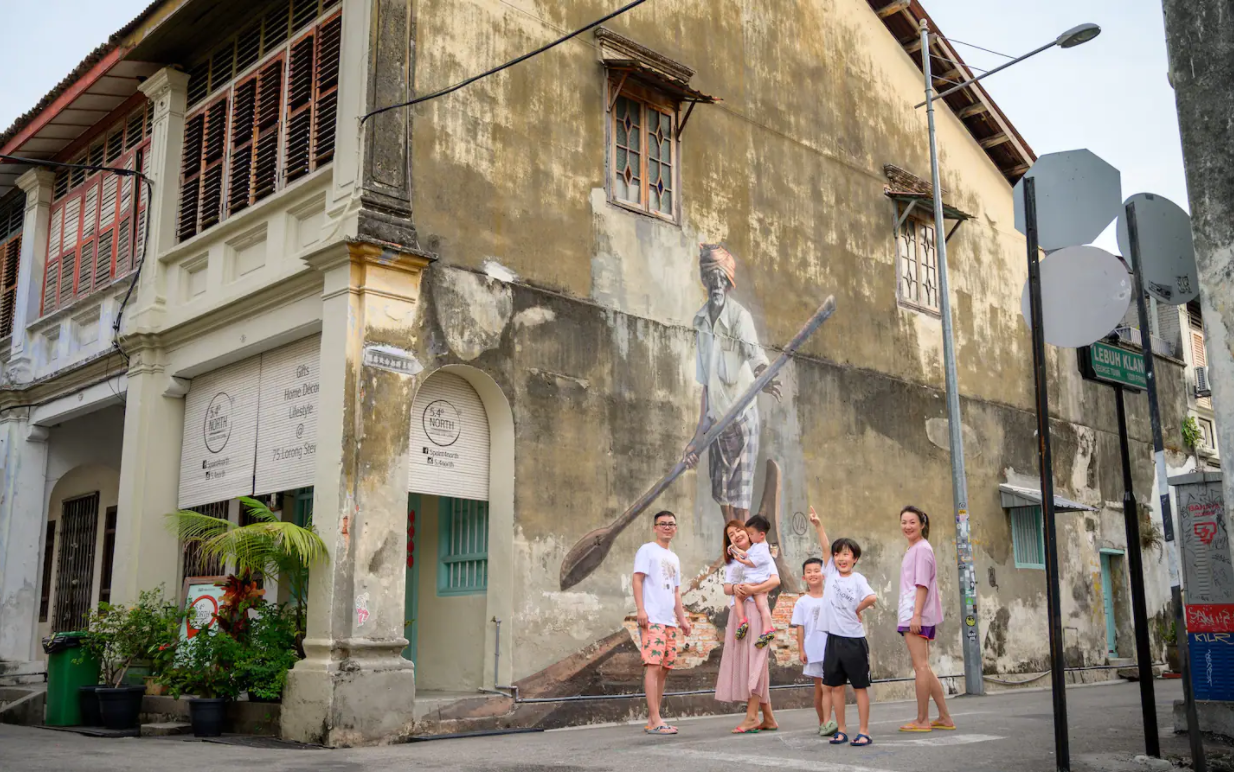Malaysians prioritise ‘conscious travel’ in tourism recovery
Key Takeaways
- New research and analysis by Economist Impact, commissioned by Airbnb, shows a vast majority of Malaysians want to travel in ways that positively benefit local communities both economically and socially
- Data shows Malaysians polled are looking to immerse themselves in the communities they visit and learn what is important to locals so they can contribute
- The travel revolution is heralding new economic and social opportunities for off-the-beaten-path rural destinations

Key Takeaways
- New research and analysis by Economist Impact, commissioned by Airbnb, shows a vast majority of Malaysians want to travel in ways that positively benefit local communities both economically and socially
- Data shows Malaysians polled are looking to immerse themselves in the communities they visit and learn what is important to locals so they can contribute
- The travel revolution is heralding new economic and social opportunities for off-the-beaten-path rural destinations
Malaysian travellers are embracing the travel revolution with a laser focus on how they can ensure their trips are more positive and empowering experiences for the communities they visit, new research shows.
The rise of the ‘conscious traveller’ is increasingly presenting as an opportunity for communities to not only grow their local economies off the back of the travel rebound but also welcome an evolving form of empowering, win-win tourism that emphasises genuine connection.
New Airbnb-commissioned research and analysis by Economist Impact*, which surveyed more than 4,500 people across nine countries in the Asia-Pacific including Malaysia, found 93 percent of Malaysians polled said sustainable tourism is important, with almost 84 percent of them saying that the pandemic had changed how they think about sustainable tourism.
The study also examined attitudes towards holistically sustainable travel that encompasses social, economic, cultural, community and environmental aspects. In Malaysia, creating equitable outcomes and income for locals, as well as engaging with new social experiences and meaningful connections, emerged as the top two most important aspects of sustainable travel for those surveyed.
The research also found:
- 73 percent of Malaysians polled say it’s important that they create a positive impact for locals, with over 60 percent saying it’s important that they’re not contributing to issues such as over-tourism.
- 70 percent say they will be more conscious when it comes to familiarising themselves with what’s important to the communities they’re visiting, and how they can make a contribution.
- 68 percent say they are conscious that communities are in need of economic recovery and will factor this into where they travel and how they spend their money.
- Almost two-thirds of the total respondents place importance on using travel as a way to meaningfully connect with communities and culture, with over 50 percent of Malaysian respondents looking to immerse themselves in local communities.
The research also highlights how the travel revolution is presenting new opportunities for rural areas, particularly those in emerging economies, as travellers become more open to exploring new ways of travelling and living:
- About half of the total respondents plan to travel more frequently to rural destinations that are not currently popular with tourists.
- Over 50 percent of Malaysian respondents plan to take workcations or work remotely when they can.
- Looking ahead, two-thirds of Malaysian respondents are planning to engage in more domestic travel than in the past, with the aim of allocating more of their travel budget within their own country.
“Following the pandemic, travellers are thinking more about the implications of their travel choices and decisions”, said Pratima Singh, Senior Manager for Policy and Insights at Economist Impact. “As demonstrated by our survey findings, we’re seeing a trend where people are attempting to make their travel decisions more sustainable—economically, culturally and environmentally—and hoping to have a more positive impact by benefiting local communities.”
This data follows Airbnb’s recent global announcement of more than 100 new upgrades across the platform, including making it easier to start hosting. Based on a Q1 2021 survey conducted by Airbnb, a third of Malaysian Hosts polled said the money earned through Airbnb provided an additional source of revenue for the household, and helped them stay afloat and fight costs of living during the pandemic**.

“Just as the travel revolution is inspiring people to embrace flexibility and reimagine the ways they live and travel, so too is it spurring on the rise of the conscious traveller.”
Mich Goh, Airbnb’s Head of Public Policy for Southeast Asia
“In the wake of the disconnection and economic hardship brought by the pandemic, people are becoming increasingly thoughtful and deliberate about how they can use travel to make a positive contribution to the communities they’re visiting. They’re thinking deeply about how they can put their tourist dollars to best use and economically empower towns and rural communities that have struggled. And they’re looking to immerse themselves in these communities and forge meaningful connections, while also minimising any unintended negative impacts.
“Airbnb is committed to partnering with governments and communities to find ways to harness the travel revolution to deliver tangible and lasting benefits for everyone. It’s critically important that both industry and government come together to make the most of this once-in-a-generation opportunity.”
Note:
*“Rebuilding tourism in Asia-Pacific: A more conscious traveller?” is a report commissioned by Airbnb and produced by Economist Impact. The findings shared in this press release are based on a survey of 4,582 travellers from nine markets: Australia, Japan, India, Malaysia, the Philippines, Singapore, South Korea, Taiwan and Thailand. The survey was conducted and completed in October 2021.